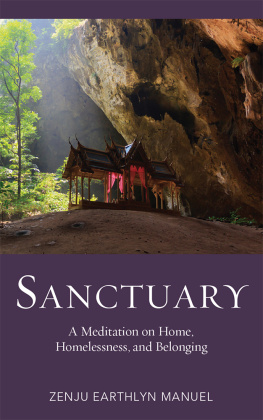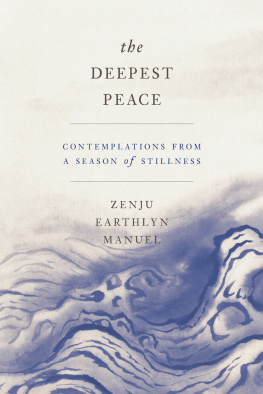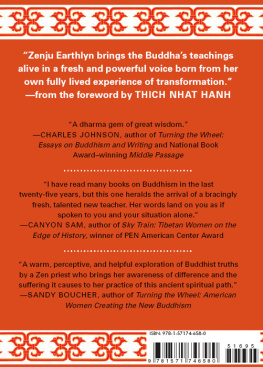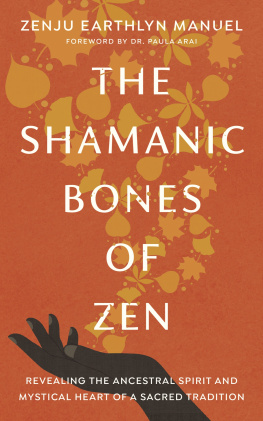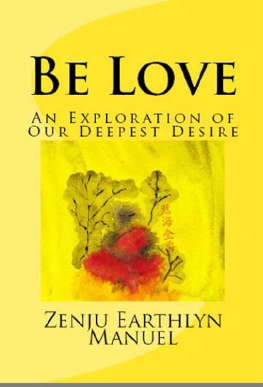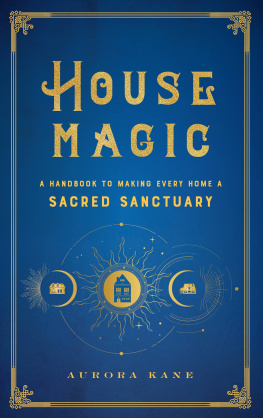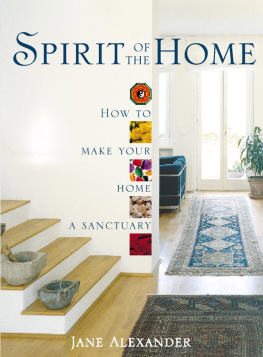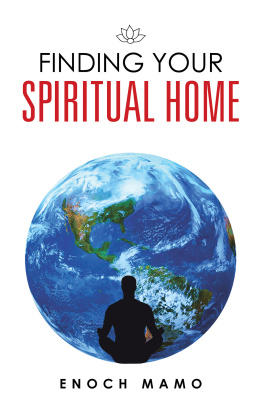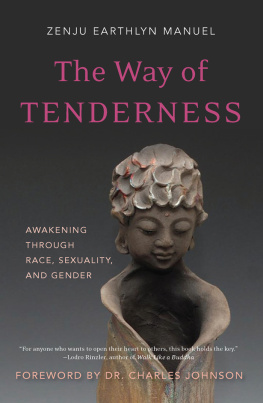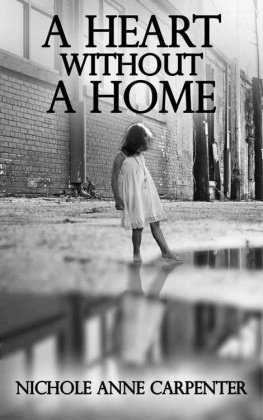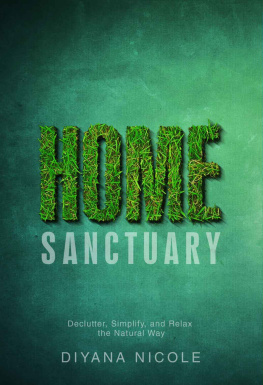More Praise for
SANCTUARY
Zenju Earthlyn Manuels Sanctuary offers us much-needed clarity and light in a time of increasing violence and confusion, daily assaults on our basic sense of belonging.
Gaylon Ferguson, author of Natural Bravery
A lovely and timely contemplation written with a poetic voice of interbeing, gracefully dissolving relative and ultimate truth into each other, compassionately embodying that place where political, spiritual, and cultural realities intersect.
Ethan Nichtern, author of The Road Home and One City
These remarkable essays by Rev. Zenju Earthlyn Manuel make us aware of the intimate relationship between home and sanctuary and the struggle between belonging and homelessness faced by many living under conditions of oppression, alienation, and dehumanization. A gifted storyteller, she offers an original look at how we might practice within the work of contemplative reflection, as well as a compelling portrayal of how that practice can be skillfully wed to a powerful and loving engagement with our world as it is. Sanctuary reminds us at a critical moment of ecological anxiety, political unrest, and a renewed intensification of hate and misunderstanding of the importance of embracing the deep abode of ancestry while simultaneously seeing the world afresh.
Chaplain Doshin Nathan Woods, PhD, University of the West

WHERE THE HEART LIVES
The Relationship Between Home and Sanctuary

We are specks of dust on a strand of Mother Earths hair. There is no need for us to save the Earth; we simply need to let her discard what has become stale. We need to release our planet of our wanting and begging, our ignorance and confusion, and be weaned from her breast, even when it feels we wont survive. When we stop exploiting the Earth, she will return to sustainability on her own and share her bounty generously.
I n November 2016, America and the rest of the world were stunned when a candidate whose platform included harming immigrants and discriminating against certain citizens won the presidency. When I learned hed been voted in, my heart sank, realizing that America had become even less of a place I can call home. Many of us had been living under a constant threat of harm for decades. Now, the blatant hatred ignored by so many others could no longer go unacknowledged. Many would recognize and join a shared sense of homelessness.
My parents were born and raised in southern Louisiana at the turn of the twentieth century, not far from the plantations where their ancestors labored as slaves, and where lynchings of their neighbors occurred often. While Im certain they did not feel at home in that environment, there was sanctuary among others who embraced the black Creole culture. Because of their cultural sanctuary, I am able to experience a sense of home in my heart. Although I wasnt born or raised in the homeplace of my parents, grandparents, and great-grandparents, the bayou, swamps, music, foods, and eloquent Creole language were transmitted to me through my parents very being. The cultural, ecological, and social life of Louisiana is in my bones, and whenever Im there, I feel a primal sense of home despite having never lived there.
Finding home, feeling home, and being at home are complex, multilayered, spiritual and cultural experiences independent of the place we live. Where is home? What is my true nature, and what does it mean to be at home with it? When I dont feel at home, where can I find sanctuary? These questions become critical when our lives are under threat.
In the early twenty-first century, groups are still being terrorized because of race, religious choice, physical ability, class, sexual orientation, and gender. Legendary radical feminist and academic Angela Davis points out that racism, Islamophobia, anti-Semitism, hetero-patriarchy, and xenophobia are, in fact, the ghosts of slavery. We have returned full circle to what catalyzed the civil rights movement and forced the creation of political and spiritual sanctuaries for those who were hunted by people trying to maintain white supremacy. In this book, I explore home and homelessness, sanctuary and refuge in the light of such terrorism and its impact on life, death, identity, and peace.
In spiritual communities, especially in Buddhist ones, the teachings on finding home are profound, but they often leave out the experiences of those who are dehumanized in their own homeland. Spiritual teachings like, Home is within the heart can be off-putting when loss and disconnection arent also acknowledged. Those who have such experiences can feel homeless spiritually and physically, and finding refuge, or sanctuary, from acts of hatred must be offered along the path of finding our true home.
I was invited to give a talk at Deer Park Monastery in Escondido, California. When I arrived, I saw a sign in Thich Nhat Hanhs beautiful calligraphy that said, I am home. When I saw it, the words rang through me as though I were hearing a temple bell. I felt relieved, and my heart knew I was home. I dont live at Deer Park, but reading the Zen masters words, I felt deeply at home. The home I felt isnt on the earth; it dwells in my heart. How was I able to recognize a home not visible but felt? Is a home like this momentary, or can I feel it wherever I go?
Deer Park, with its tree-covered hills, is a place where prayer, meditation, and song shape the sense of place and bring the visitor peace. Its a true sanctuary, offering immunity and refuge for troubled folks in troubled times. Sanctuary, from the old French sanctuaire and the Latin sanctuarium or sanctus, meaning holy, is essential for those of us who live day in and day out in chaos and oppression, where belonging is never guaranteed. As I walked the monasterys paths, I affirmed in my heart that my true home must have peace.
What leads a person to homelessness? What happens when your home doesnt have the peace youd hoped for? If we look at the impact of history, culture, and ancestry on finding home, we begin to understand the vastness of homelessness. The words I am home dont resonate for many who are marginalized by society. When we recognize the profound influence of social factors upon homelessness, then compassion, forgiveness, and similar virtues can carry us home.
If you have a sense of not belonging based on prolonged, systemic mistreatment, if youve been a target of hatred and violence, that disregard affects your well-being. In a relative sense, those who are dehumanized are never home. In the absolute sense, home is in the heart and cannot be touched by any outside force, even the most oppressive. Both senses are true. Oppressed groups live with the paradox that we are and are not home. While we are encouraged to make a home in this country, manifesting such is a struggle.
When I was eleven-years old, my family was having a tough time. One evening at dinner, the meat was stringy, and I asked, Daddy, whats this? My father proudly answered, Possum. I caught it in the backyard. I didnt know what a possum looked like. All I could think of was the blood that might still be behind the house. I dropped the meat from my fork. My father, from the back roads of Opelousas, was doing what hed always done to survive hard times. It wouldnt be long before we received our first and last bag of groceries from the welfare office. We were too proud to continue.
I remember saying to myself, I will never be as poor as my parents. I wanted to feel that I could get what I needed. And I know that when my father promised each of his three daughters a Cadillac and a house, he meant for us to be better off than he was. First, second, and third-generation African Americans who migrated north were supposed to succeed, and our progress was measured by external appearances. Most important was to have a roof over our heads. When you lose your house, you feel like a failure a disappointment to yourself and your family.
Next page
